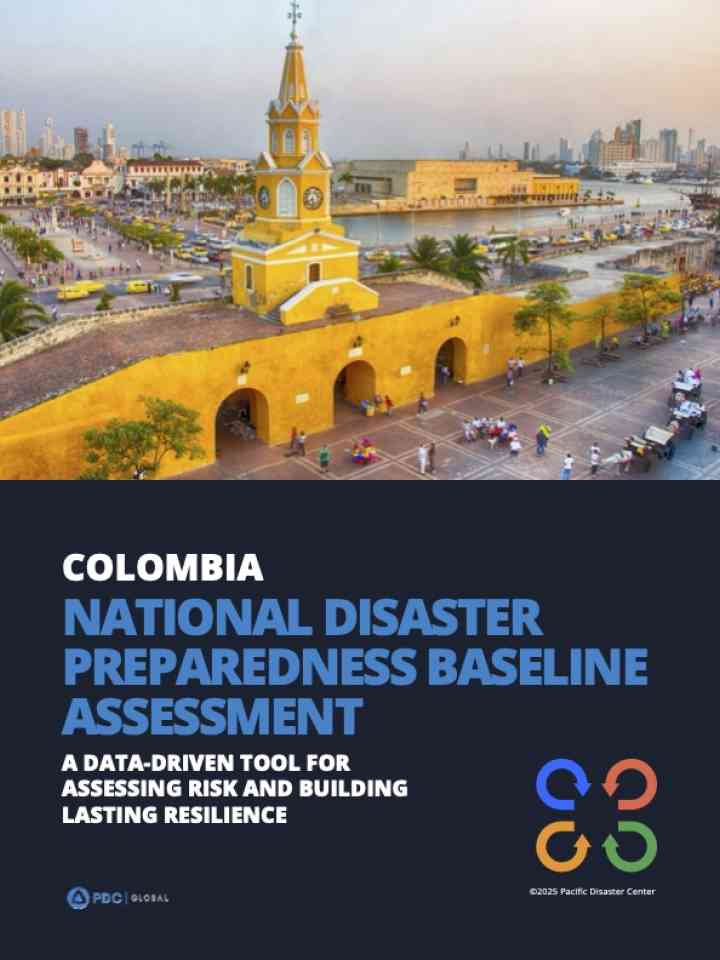Colombia: National disaster preparedness baseline assessment - a data-driven tool for assessing risk and building lasting resilience
This National Disaster Preparedness Baseline Assessment (NDPBA) is a collaborative effort between PDC and Colombia and is more than just an assessment of risk and disaster risk reduction efforts. It provides the basis for understanding, updating, accessing, and applying critical risk information in decision-making. The NDPBA provides the necessary tools, scientific data, and evidence-based practices to effectively reduce disaster risk-informing decisions from the national down to the municipal level.
The assessment is comprised of two components: the Risk and Vulnerability Assessment (RVA) and the Disaster Management Analysis (DMA). The RVA examines multi-hazard exposure, socioeconomic vulnerabilities and coping capacity to provide a detailed picture of disaster risk and support informed decision. The DMA takes a qualitative approach to assess six subthemes- Enabling Environment; Institutional Arrangements; Disaster Governance Mechanisms; Capabilities and Resources; Capacity Development; and Communication and Information Management. The DMA results are used to contextualize the RVA findings, providing a comprehensive understanding of the current disaster management landscape to support decision-making for programmatic and disaster response challenges. PDC worked in partnership with UNGRD to apply the NDPBA findings in development of a 5-Year Disaster Risk Reduction (DRR) Plan to provide for better targeted use of limited disaster risk reduction resources.
Explore further
